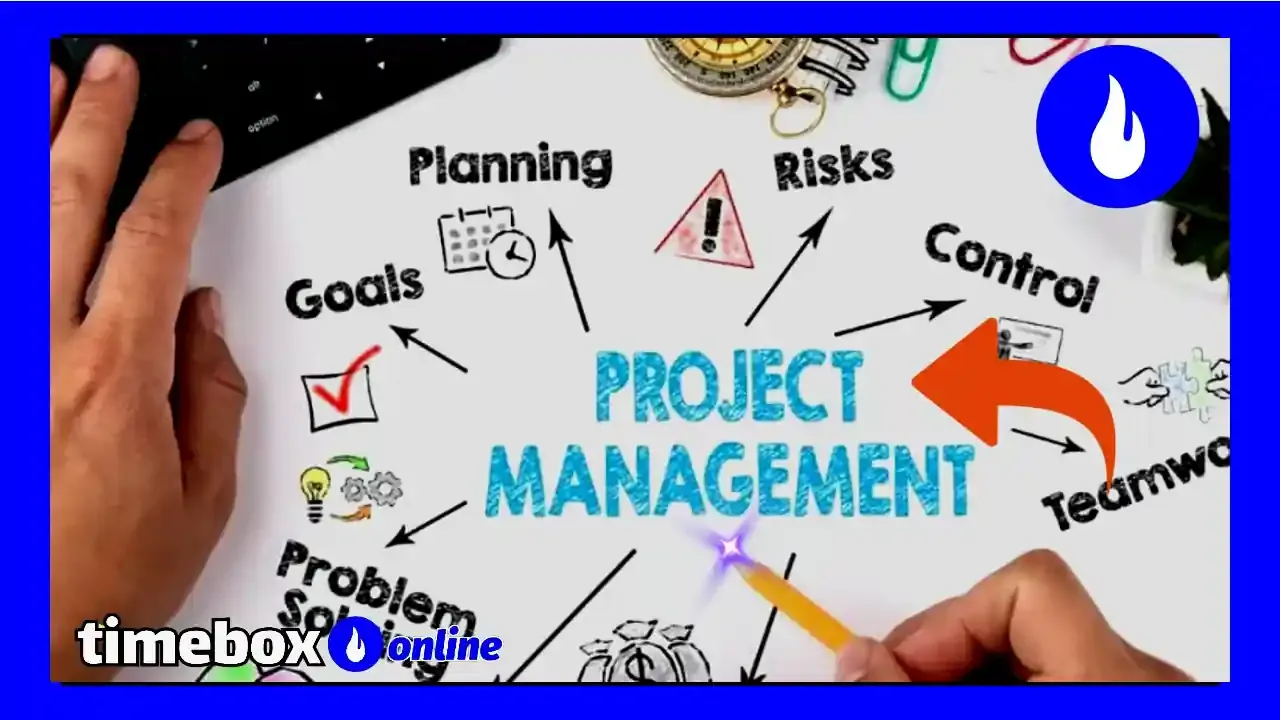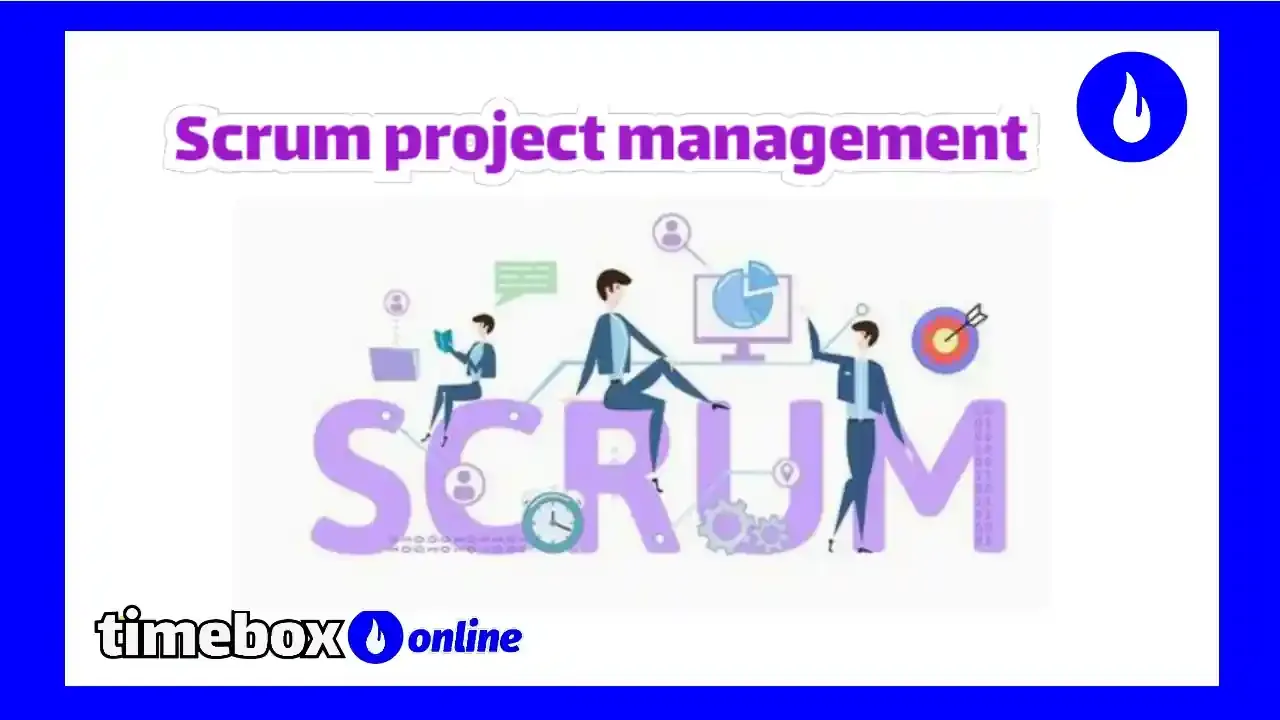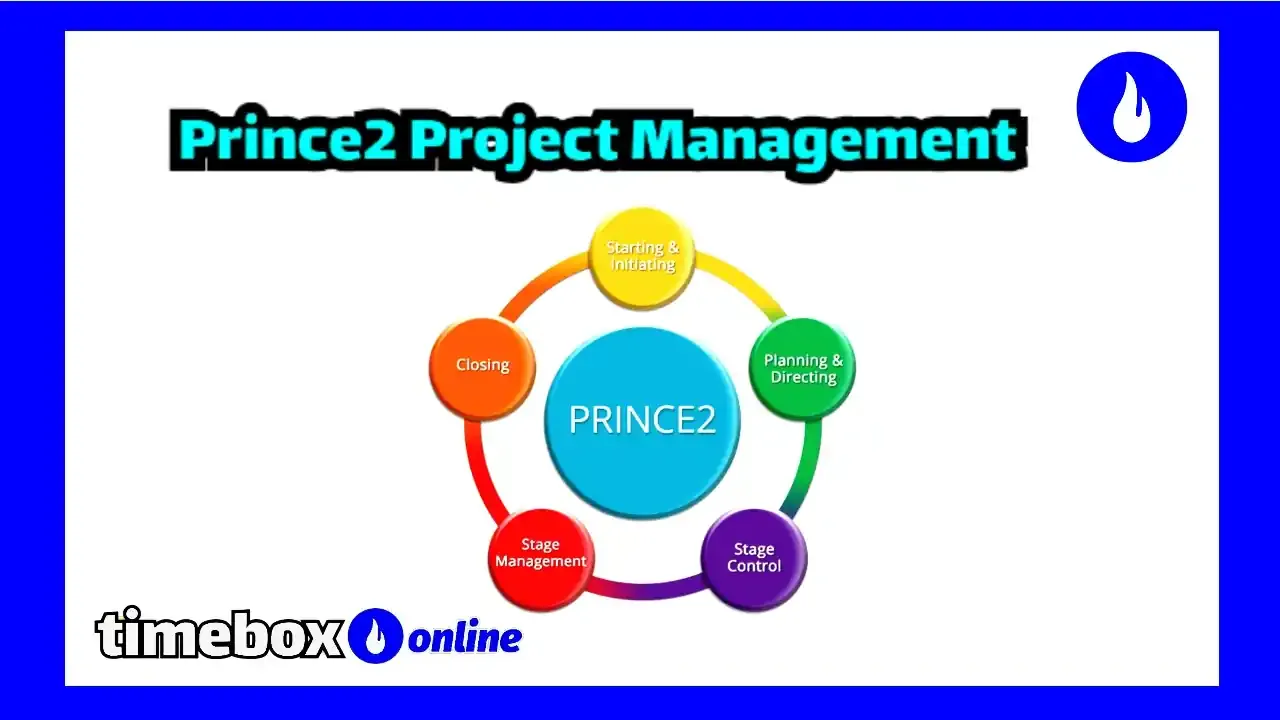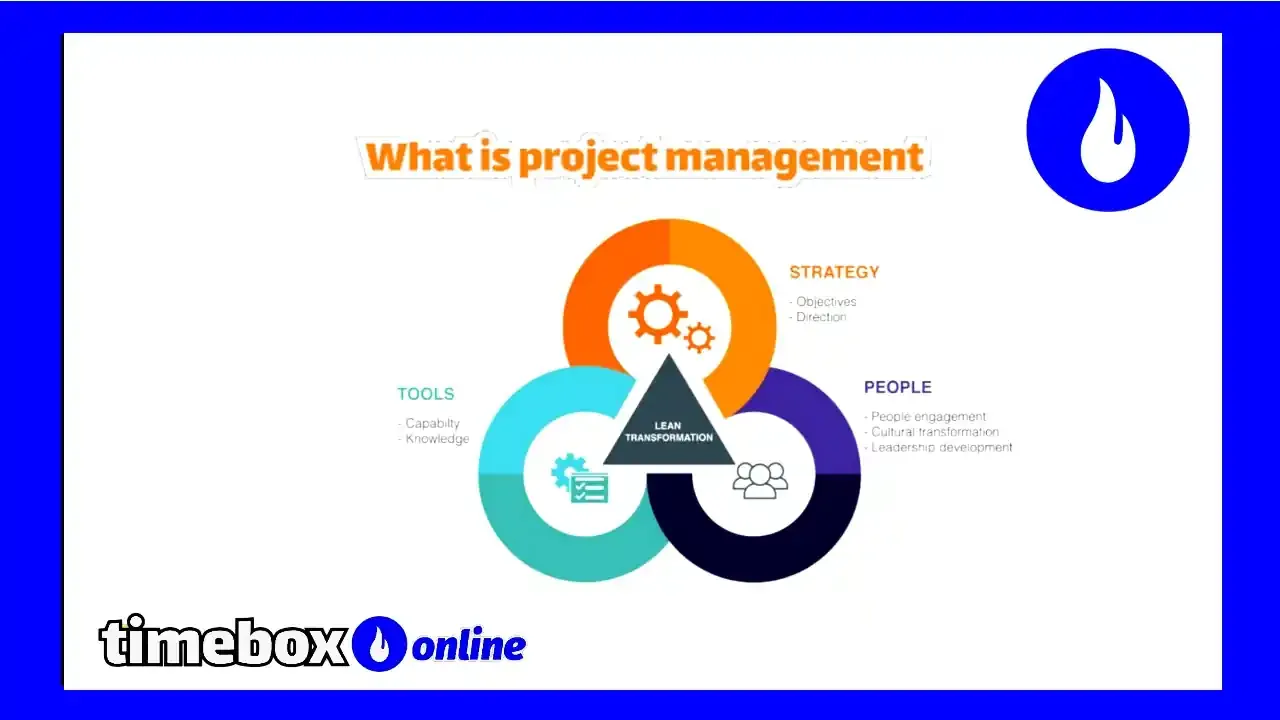If you want to learn more about project management in our timebox online article today, we will provide you with all the necessary information and all details about project management.
It includes various types, skills and stages of project management. In addition, you will learn how to make the best plan for the project. In that case, let's find out all the details and read this post to find out more.
The full details that we will get to know today are as follows :
- Part 1. What is Project Management.
- Part 2. Types of project management.
- Part 3. Project Management. Skills.
- Part 4. General stages of project management.
- Part 6. Frequently Asked. Questions about Project Management.
What is Project Management
Project management , Many people are looking for this concept, we need to delve deeper into the definition of a project in order to understand project management. Projects are short-term attempts to create value through distinctive goods, services, and actions.
Some initiatives are designed to solve problems quickly. Others need more time to achieve results that, in addition to the expected maintenance, will not require major changes, such as public roads.
Using certain information, skills, tools and procedures in project management gives people something valuable.
Each component of the project must go through the stages of initiation, planning and implementation before the final results are achieved. The project management lifecycle is the procedure that makes projects successful.
In addition, this course allows project managers to carefully plan each task and action to maximize the likelihood of success.
A project is usually a carefully thought-out activity that follows a life cycle with a clear beginning and end.
Key benefits of Project management
Project managers do so many questionable jobs that people usually underestimate their value. Below you can find out what you need to take into account to learn about the benefits of project management.
It all starts with you. Every project manager should be well aware of their responsibilities. Everyone will see the value you bring to the project if you keep an eye on it, being an effective project manager for your team.
Regulation is the second factor. If your company does not value this position and does not recognize the value of your work for the company, you will not succeed as a project manager.
Finally, the team members you work with will see the benefits of having a project manager on the team. You can only help if your team is on board.
Although you may not always need a full-time project manager, you still need someone to perform project management tasks. For example, for a small team, it may be enough to have only one person responsible for communications and logistics. This person can be a designer, producer, account manager, or developer.
Types of project management
There are different approaches to project management. Each method approaches the project in different ways. In this part, you will learn about different types of project management.
Flexible project management
Flexible project
management is one of the oldest methods of project management. Flexible project management uses a step-by-step strategy. This strategy provides benefits all the way, rather than waiting until the end to achieve results.
Waterfall Project Management
The project is being completed in stages using the Waterfall project management method. This type of project is organized in advance and executed directly, with the expectation that nothing will change.
Kanban Project Management
In addition, there is a project management Kanban that promotes fewer changes to the project. It is used to visualize the overall workflow of the project.
In addition, it tracks the performance of project functions over time. It also identifies problems and provides feedback to achieve the most important results.
Scrum project management
The scrum method is another form of project management strategy. The basis of this system is to allow teams to collaborate. He completes small parts of the project every month. Every day, all teams meet to discuss any issues.
They comment on how the task is progressing. This approach uses rapid development and testing to get results as soon as possible and avoid mistakes.
Six Sigma Project Management
The six sigma method is the next approach to project management on the list. This approach focuses on increasing the level of project completion.
The team classifies all problems before they are fixed during the course of the project. Without creating more garbage, that's what is meant.
You can see the result with this project management. She is aiming for significant financial gain. It also highlights the use of data analysis to improve customer satisfaction.
Lean project management
This approach is based on the client's mindset. Then the best results are achieved by following a budget using strategies. This approach also aims to achieve results as quickly as possible.
However, he is trying to complete the project without encountering any problems. The skinny approach emphasizes the need to complete tasks with a minimum amount of resources. These include labor, equipment, and supplies.
Prince2 Project Management
PRINCE2 is the most beloved project management style. The government uses this method in the first place.
It focuses on achieving effective results while minimizing any risks. The PRINCE2 methodology divides the project into separate tasks. He can complete tasks one by one. Thanks to this, the task is performed accurately and without any errors.
Project management skills
In this part, you will master the basic project management skills to achieve your goal. find out all the details
Cost management
The project always takes into account the budget. There are many things to consider, especially how to approach the project budget. A project can fail if you don't know how to manage your budget properly.
Reading and writing
Project managers need strong writing and reading skills. Almost any job requires strong reading and writing skills. They are crucial in project management.
Location
One of the most important parts is planning. This will serve as the basis for the entire project. This includes budget, people, location, and more. It also includes ways to solve possible problems during the implementation of the project.
Guide
This type of skill plays a huge role in project management. A leader should guide others to achieve the best result. Leadership involves decision-making.
A wise decision can lead to good results. However, an ill-considered decision can facilitate the implementation and completion of the project.
Time management
Time management should be your strong point or something you are working on. You should develop consistent time management skills. In this way, you will learn the optimal course of action at every moment.
Critical thinking
Project management will require frequent use of critical thinking. You must have the ability to act quickly, working within a set of constraints. Possible consequences for the future project should be foreseen.
Plug
Another project management skill is communication. You need to communicate well with all the people involved in the project.
This includes the team, customers and key stakeholders. Good communication can lead to a good result. This can make all the fears more explicit.
In addition, pleasant communication means that you have a good relationship with the people involved in the project.
Delve more deeply into the basics of project management after knowing the comprehensive concept of project management.
General stages of project management
Project management begins when a team or manager launches a project. Below you can find the project management steps that you need to know. find out all the details.
The launch stage
The project manager will appoint team members to volunteer or complete a specific task.
The planning stage
The client and the team will coordinate the project schedule. This also includes creating a schedule of engagement with stakeholders. The budget is also taken into account at this stage.
Implementation stage
It's about where the work is being done. An employee can work on a task in a team or individually at a previous stage.
The observation phase
The manager always monitors the team to make sure that the project is on the right track.
The final stage
The manager ensures that the team completes the project in accordance with the agreed standards.
Frequently Asked Questions about Project Management
1. What did the project manager do
Assistance in the process of implementing projects and determining the scope and objectives of each project, preparing project budgets according to the scope of work, tracking all project costs to ensure that the budget is covered.
Stakeholders should periodically receive all project updates and provide them with the necessary information about planning strategies, administrative procedures, etc. processes and adjustments.
2. What is successful project management?
Project management is important because it brings leadership and direction to projects. Without project management, a team can be like a rudderless ship that moves, but without direction, control, or purpose. Leadership allows the team to do their job in the best possible way.
Project management provides leadership, vision, motivation, removes obstacles, trains and inspires the team to do their job in the best possible way. Project managers serve the team, but also provide clear accountability. With a project manager, there is
No confusion about who is responsible for and controls everything that happens in the project. Project managers ensure that the process is followed, and also maintain the agreement of all team members, because in the end they take responsibility for whether the project ends in failure or success.
3. What are the risks in project management
Project risk is any risk that may arise in the current period or is likely to arise in the future, such as economic instability or out-of-control natural disasters, the elimination of which may cost the company a lot of time and effort, which affects the workflow of business activities and its goals and poses a threat to its success.
Conclusion
Project management is the use of tools, skills and knowledge that can be useful for the success of a particular project. In this case, in these instructions you have received quite detailed information about project management, including the types, skills and methods of creating a plan. Therefore, if you also plan to create a plan for your project.






